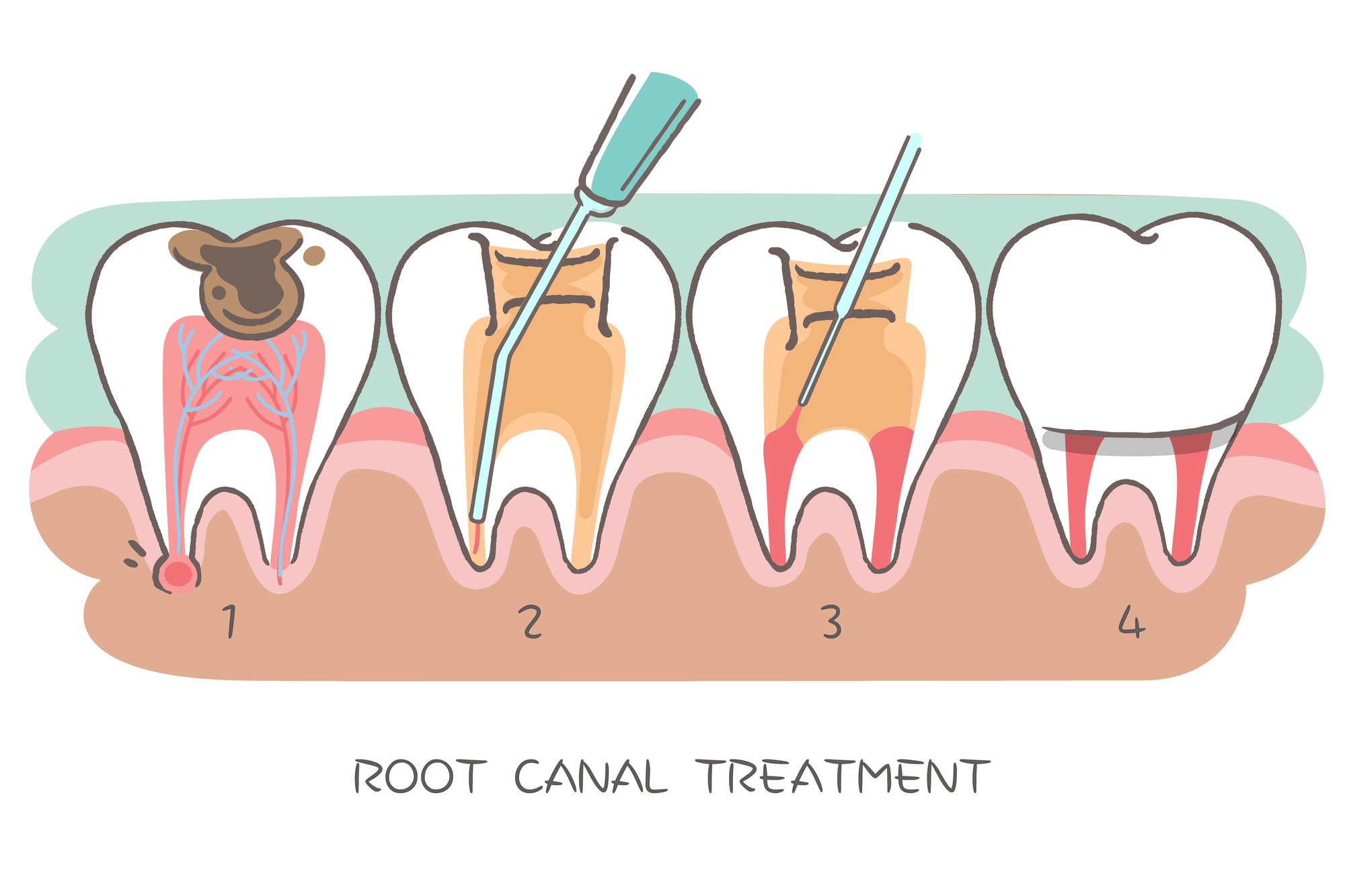
So, you’ve been told you need root canal therapy. There are probably one hundred questions running through your mind, or maybe you don’t know which questions to ask! Although root canals have a reputation for being dreadful, the procedure is simple, comfortable, and extremely beneficial.
Root canal therapy allows patients to keep their natural tooth while eliminating the infected pulp inside of it. This permits the patient to maintain chewing and biting force, keep a natural appearance, and protect his or her mouth from further infection.
To help prepare patients for their root canal treatment, we’ve answered five of the most frequently asked questions about root canal therapy in this blog.
1. What are the most common reasons for root canal therapy?
There are several reasons a patient may need a root canal, including:
- Deep decay caused by untreated cavities
- Having several procedures done on the same tooth
- A poorly fitted crown
- Severe crack or chip in the tooth
- Injury caused by car accident, sports injury, etc.
The bottom line is that any time the pulp of the tooth is damaged or infected, root canal therapy is one of the most practical and effective solutions.
2. How painful is a root canal?
One of the most common misconceptions about root canals is that they are painful. While that may have been the case in the past, modern technology has made this treatment about as painless as having a cavity filled. In fact, the infection or damage is much more painful than the treatment.
3. Is it better to have the tooth extracted?
Because root canal therapy saves the natural tooth, it is a much better option than pulling out the tooth. Prosthetic teeth cannot replace the look and strength of the natural tooth and people who choose to have the tooth extracted will most likely need to have the tooth replaced with a bridge. These may not last long, but root-canaled teeth typically last a lifetime.
4. What happens during the procedure?
After taking X-rays, the dentist numbs the area with local anesthesia and places a rubber dam around the tooth to keep it dry.
Then, he accesses the pulp of the tooth to remove the bacteria and decay with root canal files. Water or sodium hypochlorite is sprayed throughout the inner tooth to flush away the debris.
During a second appointment, the dentist fills the tooth with a biocompatible material called gutta percha, then seals the tooth. If necessary, he will reinforce the tooth with a dental crown.
5. How can I avoid another root canal therapy in the future?
Avoiding another root canal is simple: amp up your oral hygiene routine. This is especially important for patients who had a root canal due to dental decay. However, a good oral hygiene routine keeps all types of oral health problems away.
Here’s what your oral hygiene routine should consist of:
- Brushing in the morning and evening
- Flossing daily
- Using an antibacterial mouthwash
- Eating properly
- Visiting the dentist every six months
Schedule Your Appointment Today
Whether you need root canal therapy or its time to schedule your dental clean, our team at Magic Smiles is prepared to help. If you’re nervous about a procedure, ask us about our sedation methods.
Call (02) 6654-0650 to schedule your appointment today.


